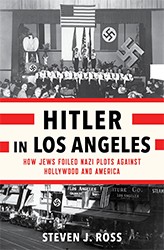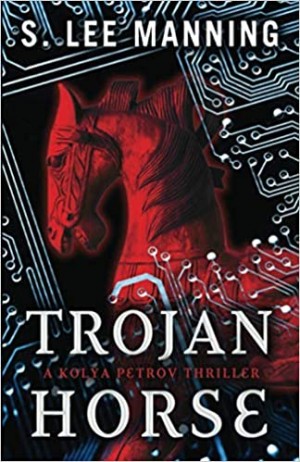Laura B. Rosenzweig, an independent scholar, has transformed her doctoral dissertation into an important monograph. Her well-written and copiously documented volume, based on previously untapped primary sources, is a revisionist study in at least two respects. Firstly, previous studies examining the threat posed by American Nazis during the 1930s have focused on New York City, Boston, Chicago, and other major cities in the East and Midwest. Rosenzweig makes a convincing case that the most effective campaign waged by American Jews against the Nazis, either locally or nationally, actually occurred in Los Angeles. This campaign also helped establish the city “as a new site of Jewish political influence in the United States.” Today metropolitan Los Angeles has more Jews than anywhere else in the United States, with the exception of New York City, and Rosenzweig’s book is another indication that writing the history of the Jews of Los Angeles has come of age.
Secondly, while several scholars have recently accused the Hollywood moguls of appeasing Nazi Germany due to fears of an economic boycott of their films, Rosenzweig balances the picture by showing that, at least when it came to homegrown Nazis, the Hollywood movie world was not passive. Instead it exhibited “an instance of American Jewish political agency in the 1930s that was shaped not by fear but by courage.” The moguls, along with actors, directors, producers, screenwriters, and others involved in the entertainment industry funded the anti-Nazi campaign in Los Angeles, including such luminaries as Pandro Berman, George Cukor, Sam Jaffe, Ernst Lubitsch, Joseph Mankiewicz, Louis B. Mayer, Leo Rosten, David Selznick, Dore Schary, Irving Thalberg, Walter Wanger, Jack Warner, and Eugene Zukor.
Leaders in the film industry were active members of the Los Angeles Jewish Community Committee. The LAJCC, founded in 1934, was the first American anti-Nazi Jewish resistance organization. Its activities included infiltrating private investigators into the local Nazi groups, and then communicating their findings to Congressional committees and the Los Angeles police. According to Rosenzweig, the LAJCC – not the Anti-Defamation League of B’nai B’rith, the American Jewish Committee, the American Jewish Congress, or local Jewish organizations – was the most important source of information for other Jewish organizations, churches, the press, veterans’ groups, the Federal Bureau of Investigation, and the American military on the insurgent Nazi threat. Particularly important in this respect was the newsletter of the LAJCC’s News Research Service. The NRS, Rosenzweig notes, “elevated the LAJCC to a level of national political influence unmatched by any of the other community-based American resistance organizations in the 1930s.”
Hollywood’s Spies would have been an even better book had the story of the LAJCC been put into a broader context. While it is understandable that Los Angeles Jews were horrified by the local Nazis, how important were they in the great scheme of things? They were a noisy and loathsome group, but there is no evidence, except in their own eyes, that they were significant, either in Los Angeles or elsewhere. The Nazis had only a couple of hundred followers in Los Angeles, they never won any elections, they failed to attract any significant financial support, and they had no presence within the city’s political, social, and economic elite. Despite their anti-Semitic threats, the local Nazis, as Rosenzweig notes, these “never amounted to anything more than boisterous disruptions of antifascist political meetings and isolated incidents of vandalism”. They were even disdained by the local Ku Klux Klan chapter for being an un-American instrument of a foreign country. It was a kiss of death for any American politician during the 1930s to be associated with pro-Nazi Americans, and even Berlin realized that they were an embarrassment. The febrile response of Los Angeles Jewry to the local Nazi menace was, in fact, more indicative of their own insecurity than of any “heroism” or “courage.”



